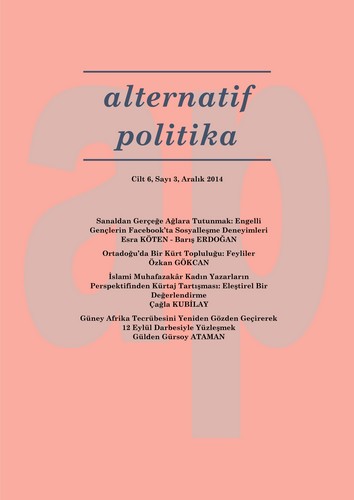Sanaldan Gerçeğe Ağlara Tutunmak: Engelli Gençlerin Facebook’ta Sosyallesme Deneyímleri
Transition from Sticking to Virtual to Real Networks: The Socialization Experiences of Disabled Young People
Author(s): Barış Erdoğan, Esra KötenSubject(s): Theory of Communication, Family and social welfare, Social Informatics
Published by: Rasim Özgür DÖNMEZ
Keywords: Social Network; Facebook; Young People with Disabilities; Social Capital;
Summary/Abstract: Today, social networks on the Internet are seen as important tools for the integration of young people with physical disabilities to society and for the construction of their social capital. For young people with disabilities whose socialization experiences in real life are poorer than their peers, a social media network like Facebook offers important opportunities to follow new people, get to know them, meet with them over the network and convert this acquaintance to face to face communication in real life if possible. Communication established and maintained on Facebook, the most commonly used digital social network, has become one of the indispensable aspects of everyday life for young people with disabilities as well as other young people yet it has to be investigated whether that communication contributes to their socialization or not and to what extent this contribution is, if there is some. In this study, the relationship between young people with disabilities’ use of Facebook and the construction and continuation of social capital is discussed. In this context, the purpose of this study is to discuss the impact of young people with disabilities’ socializing experiences through Facebook on the processes of social inclusion and exclusion of them. To this end, a qualitative field research was conducted in eight cities in Turkey between January and June 2014, consisting of in-depth interviews done with 31 young people with physical disabilities. The Facebook experiences of these young people are classified in three categories: The first category consists of interviewees whose communication remains limited to the existing acquaintance as they use Facebook just to follow others and spend some time. The second category consists of young people with disabilities who meet new people but do not see them face to face. And the third category includes interviewees who meet and see new people, so that increase their social capital to some extent. As a result, it has been seen that social capital in real life is a determinant of social capital in the virtual world. Young people with disabilities can use their strong and weak ties more effectively and efficiently in the virtual world as they participate more in social life in the real world. However, digital social networks such as Facebook do not alone increase the social capital of individuals with disabilities and their integration into society.
Journal: Alternatif Politika
- Issue Year: 6/2014
- Issue No: 3
- Page Range: 333-358
- Page Count: 26
- Language: Turkish

